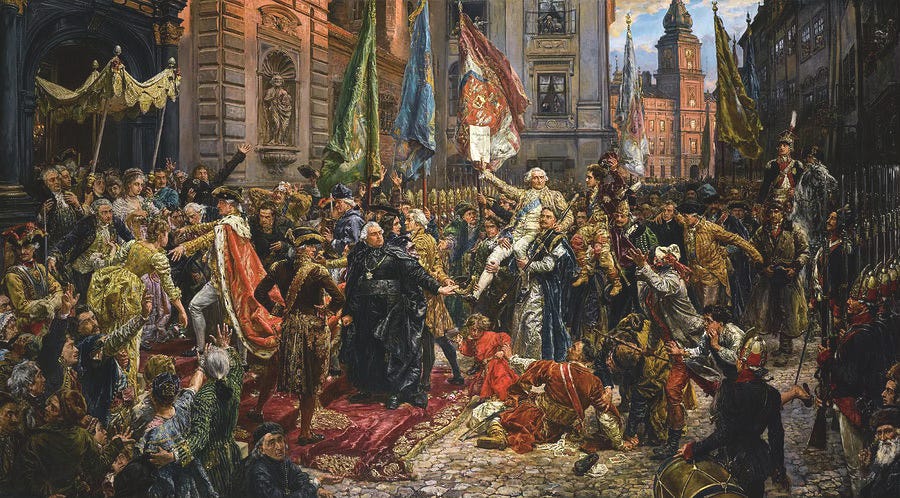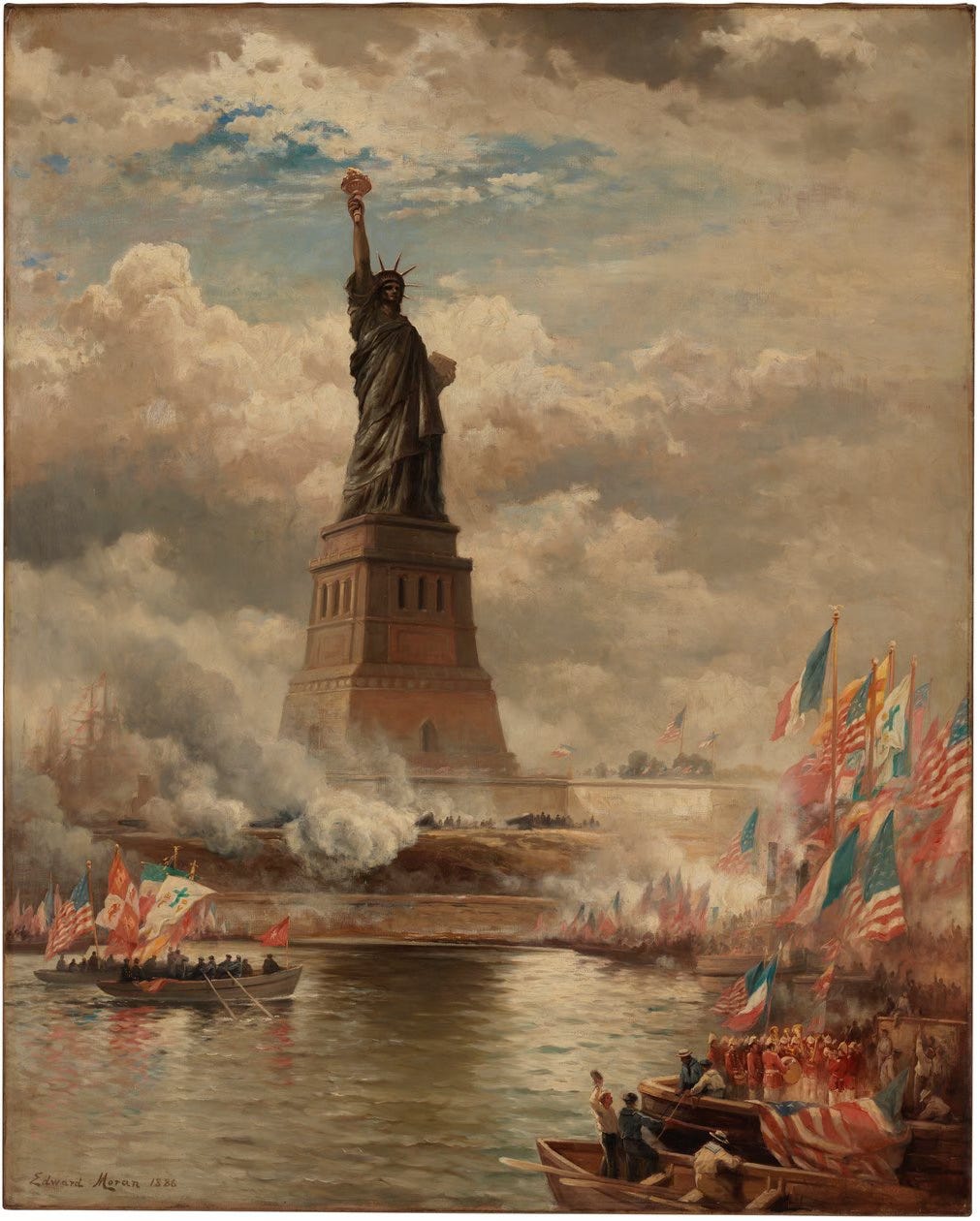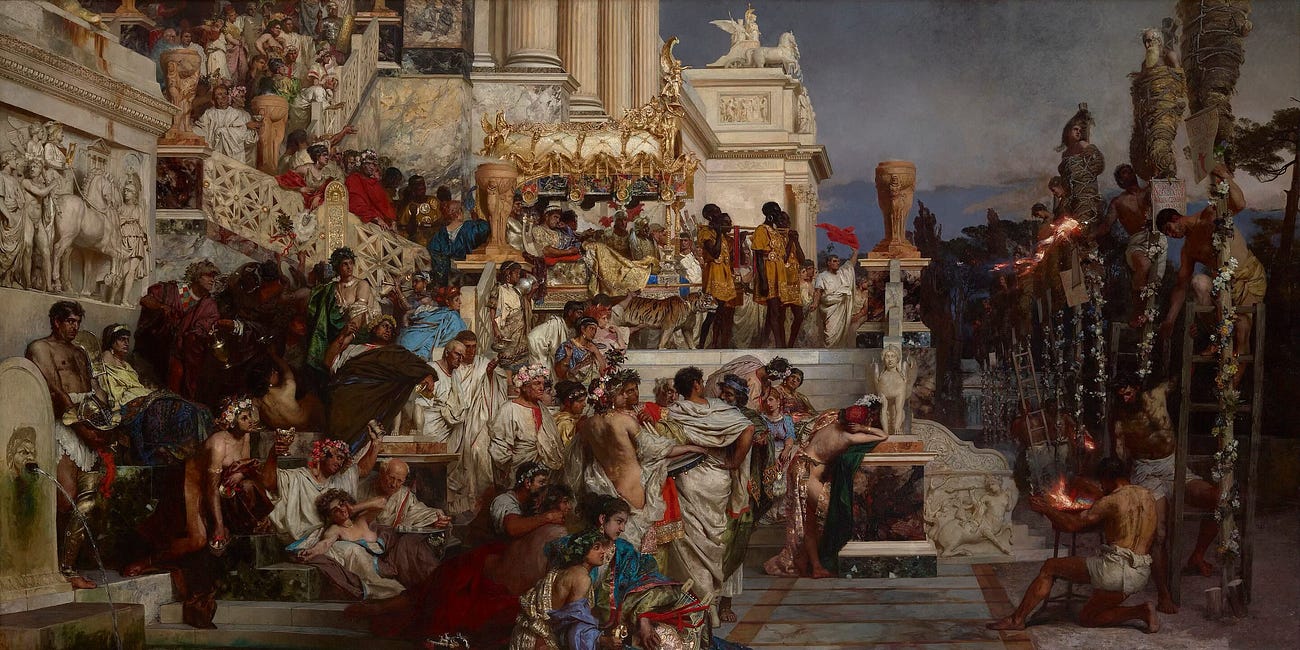Before all else, we must define it. To render it most simply, politics is the application of power. There are no politics without power, ever. But the concept, “power,” can be made simpler still: it is the capacity for real or potential violence. Politics, therefore, are the science and art of applying violence.
Dahl is taught in universities, but hated. He teaches that power is the ability of “A” to make “B” do something that they otherwise would not do. While this grates on the sensibilities of many, it is true—since everyday you and I are compelled: to obey traffic, pay taxes, labor at work and the like. If the country so wanted, they could send us all to war, or imprison us in a tiny cell for refusing. We tend to grasp the rule of violence when it comes to extremes like that, but it is actually a constant in all politics.
If you live in a country that is domestically peaceful, it became so first by threats. These were then codified into laws and socialized into behavioral norms. We are grossly simplifying the actual historical process here, but the general rule does hold. The legal system conceals the violent nature of politics, but it also excels—more than anything else—at constraining the use and application of violence. Because of that, the majority of us do not understand what politics actually is, and associate it with competition and mere preferences (professional politics has the feel of professional athletics).
But if we refuse or fail to pay for some bill, a property tax, or a car note . . . pressure will be applied in an ascending pattern. Compounding fines, written warnings, garnishments, and the like. And if we persist into perpetuity, violence comes into play. The state, at some point, will physically restrain you, take your things, physically beat you, physically imprison you, or something of the sort to force compliance; and sometimes that can be linked to what was a very minor infraction. There is not a real way to “opt out,” and there is not a real way to defy the state, and to insist on trying will eventually get you hurt.
Returning to Dahl. A gap does exist between what “A” threatens to do, and what “A” will actually do. But the problem here is two-fold. We rarely know the total extent of A’s power, and we rarely know how much of it they are willing to use “right now.” This is strategically valuable for those that hold power, because humans are inherently fearful of uncertainty. They will give in if a thing seems scary enough, or if an outcome can’t be predicted. Hence, we see, that power works by applying violence literally, but also by threatening to, or by implying that it can. A highly sophisticated and legalistic state can greatly conceal its actual nature, and the nature of politics.
It says something that when racial and social minorities report being brutalized by the state, they aren’t believed.
Violence is the heady reality of politics. No matter how sophisticated a state or government is, under the right conditions it will use violence on you. Sub-definitions of politics like to portray it in a friendly or digestible way. These emphasize “competition,” “teamwork,” “coalition-building,” and “decision-making.” These types of definitions are usually apt . . . especially if you live in a rich republic or democracy. But what tends to happen when resources go scarce, or when an external enemy starts plotting, or when an ideologue captures the government and sees too many “others” within, is violence (or, at minimum, compulsion—which is always one step from violence). The violent law of politics immediately reappears and those swept up by the “nicer” definitions are shocked. This produces a strange effect: that of speaking about coalitions and teamwork—about civility and mutual respect—as a boot is crushing their neck or the neck of others.
Again, this is because the majority of us live in states where Legalism is the legitimate authority, and Legalism USUALLY excels at constraining the use of violence, and at banning it as a social norm. In reality, politics IS the application of violence. States are simply best at politics when they compel “good” conduct by code, statecraft and socialization instead of outright force. The second any of that breaks down (and we can observe this in the inner-cities of America and in rural hellholes both), the rate of violence picks back up—on behalf of both state actors and non-state actors.
There are very few places today where Legalism is not seen as the ultimate authority. And the attempt to rule or usurp by Charisma or Tradition is held to be illegal or distasteful. This alone has protected many millions.
That the Rule of Law rose so high, as to now be taken for granted, is indicative of what human beings can become, and indicates that the law of violence can be severely checked and regulated (although probably not gotten rid of). It is imperative that we understand the ultimate nature of politics. This way, we can predict what retrograde movements are trying to do (and how), and we can resist the paralysis that tends to occur when these forces resort to violence—especially against the backdrop of modern civilization.
Weber is preeminently useful here. We tend to see someone as a legitimate source of authority when they are Charismatic, appointed via Tradition, or appointed via The Law. Justice results most frequently as a result of that last one: The Law. Those who wish to overturn or destroy Legalistic societies have the best chance of doing so NOT by appeal to Tradition, but by Charisma (a thing the United States is witnessing).
Our case is actually fascinating because our demagogue is concerned with personalism and self-aggrandizement most of all. But the “Traditional” conservatives are convinced that they can use him for their own ends, and are ploughing ahead with the deconstruction of the nation’s very basis. This is quite literally a recent historical pattern. In the case of Europe’s two demagogues, both were enabled by conservative parties. These were terrified at populist anger, but thought they could tame and use it if they co-opted the demagogue. We know how that turned out, and we are seeing the result of that thought for a third time.
The silver-lining is that Legalism is quite robust, rationally constructed, and is socially normal. Dark periods of recent history have tended to be interruptions of Legalism, but said Legalism reasserted itself soon after, and strengthened.
My exhortations, then, would be: to think about who is in power, and who they want to normalize using violence against; what areas of the law would need to be undermined and eliminated for that normalization of violence to occur; to think rationally and to resist how you can.
For the qualities that tyrants prefer in a mass are emotionalism and indiscipline; a fragmented mind and poor reasoning skills; a desperate desire to never have to fight; fearfulness and the want of a savior. Legalism makes the wild assumption that the basic unit of a human being—black or white, a woman or man—is capable of self-rule, self-determination, and of simultaneously living in a community. It is assuming that we are not slavish, and will fight off the attempt to make us slaves: prove the assumption.
Further reading
The Eternal Reign of Charisma
There are three things that men obey: the strong, customs, or laws. The former two are ancient, and appear now as anomalies. The African junta, the cartel boss; the laws of a prophet, some honor killing—these are the result of a societal lag . . . residue, from a bygone era.
The Gentleman & The Prophet
“Seeing de Gaulle in the flesh confirmed all Roosevelt’s prejudices. The General’s startling intensity was anathema to his smooth patrician urbanity. He told Churchill that he was ‘concerned at the spiritual look’ in de Gaulle’s eyes. He afterwards recounted, with many embellishments in the retelling, that de Gaulle had compared himself to Joan of Arc. …





